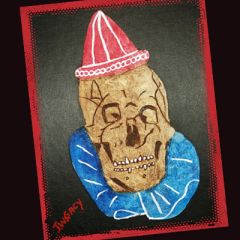In her October 2024 Illinois Bar Journal article, “Much Ado About Little,” Katherine Hanson questions whether, as some legal scholars have claimed, that the COVID-19 pandemic may have paved the way toward extinction of the doctrine of forum non conveniens due to the technological innovations the pandemic ushered in.
Illinois Bar Journal
-
October 21, 2024 | Practice News

-
October 14, 2024 | Practice News

As Illinois’ Generative and Natural Language Processing Task Force, charged with assessing legislation, rules, and policies, and educating members and the public at large, on the vast implications of artificial intelligence (AI), its findings and recommendations may ultimately shape best practices in Illinois, including its courts, says Rodney R.
-
October 10, 2024 | Practice News

In the early to mid-1990s, Illinois attorney Karen Conti and her husband and law partner Greg Adamski took on serial killer John Wayne Gacy as a client during Gacy’s final appeals as his execution date closed in on him. It wasn’t until now that Conti has been willing to process and share the full set of complex emotions she experienced as she represented Gacy.
-
September 23, 2024 | Practice News

Wrongful-death lawsuits in Illinois often involve federal and state law causes of actions. Because of this, courts often wrestle with difficult determinations at trial regarding what sort of evidence is admissible concerning a decedent’s life. In their September Illinois Bar Journal article, “The Value of a Life,” Christian Ketter and Jason Rose explain why attorneys for plaintiffs often argue that most unfavorable evidence about a decedent’s life is inadmissible.
-
September 16, 2024 | Practice News

Of course, adults with disabilities have sex. A 70-year-old in a nursing home wants to feel young again. A newly turned 18-year-old wants to be an average young adult. A 30-year-old with a spouse dreams of starting a family.
-
September 9, 2024 | Practice News

During the ISBA’s Member Appreciation Month this past May, we asked members of the ISBA to recount for us the one mistake they made as an attorney that they’ll never make again. Responses poured in and ranged from utter fiascoes to one’s pride being taken down a peg or two. We were pleased also with everyone’s candor; humility; good humor; and appreciation that in the law, as in life, we often learn most from our mistakes.
-
September 3, 2024 | Practice News

The September Illinois Bar Journal introduces the concept of “collaborative practice,” a model of conflict resolution that can be preferable to a litigated case, promoting civility, greater control over the process, and more amicable outcomes. This is according to presenters from “The Collaborative Team Process: A Primer for Family Lawyers and Judges,” an ISBA continuing legal education program.
1 comment (Most recent September 6, 2024) -
August 26, 2024 | Practice News

In his August Illinois Bar Journal article, “Lobbying as an Illinois Lawyer,” Arthur Miller explores how lawyer-lobbyists can balance their ethical duties as members of the bar alongside the competitive professional ecosystem of lobbying.
-
August 19, 2024 | Practice News

In her August Illinois Bar article, Louise Simpson addresses epigenetic testing, the study of heritable traits that occur through the modification of gene expression rather than changes to the DNA sequence itself. Simpson writes that the federal Genetic Information Nondiscrimination Act protects against certain forms of discrimination over genetic testing data, but it fails to protect interpretations of epigenetic data gleaned from epigenetic testing. Currently, she argues, no nondiscrimination law has been implemented offering protections for consumers of epigenetic testing, leaving commercial and medical epigenetic testing ripe for abuse.
-
August 13, 2024 | Practice News

Each August, the Illinois Bar Journal features a summary of legislation passed by the Illinois General Assembly during the most recent spring session that may be of interest to ISBA members. Following each update is a link to the new public act’s or bill’s full text. The public acts are organized by area of law and are compiled by David Eldridge, who represents the Illinois State Bar Association before the General Assembly.

